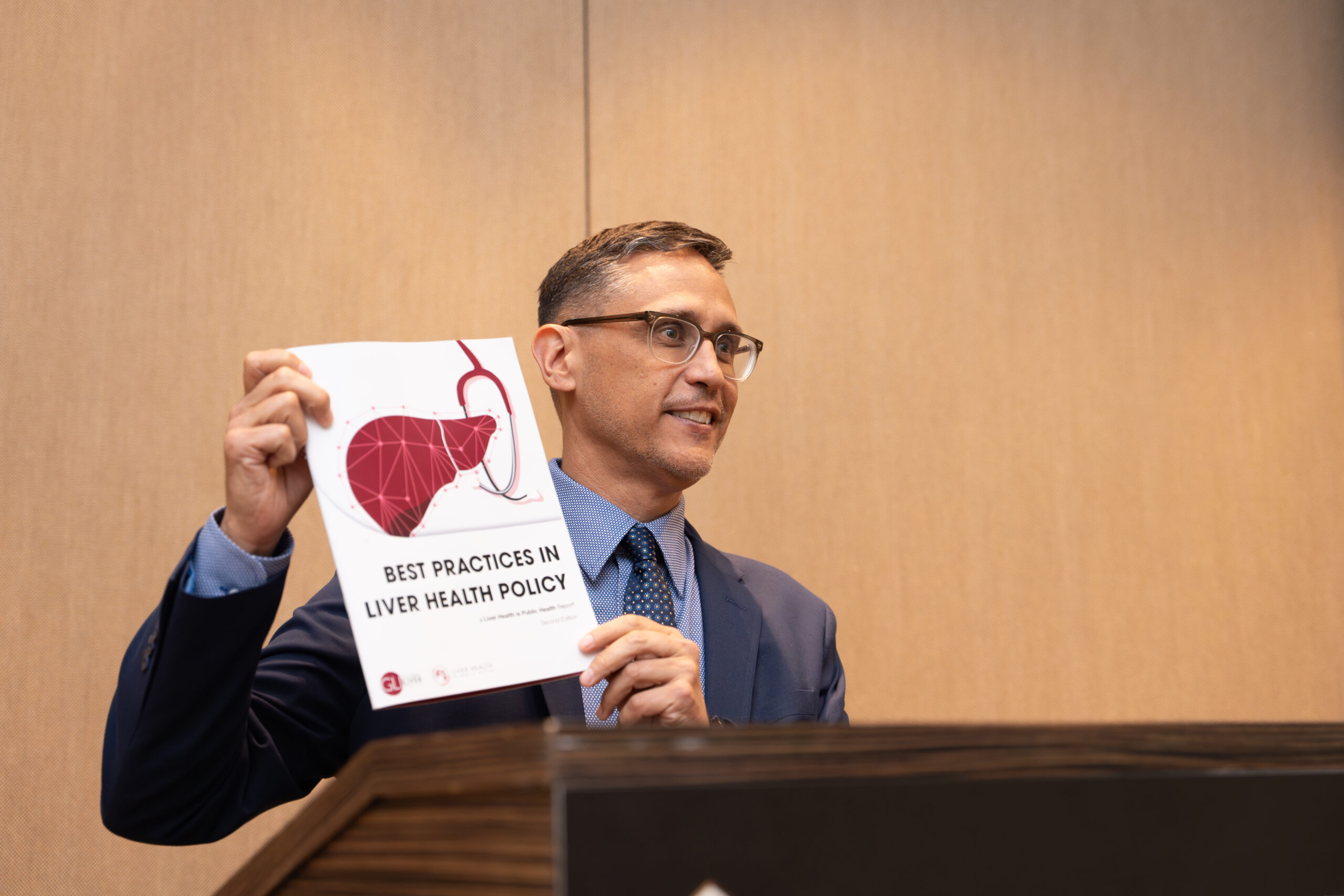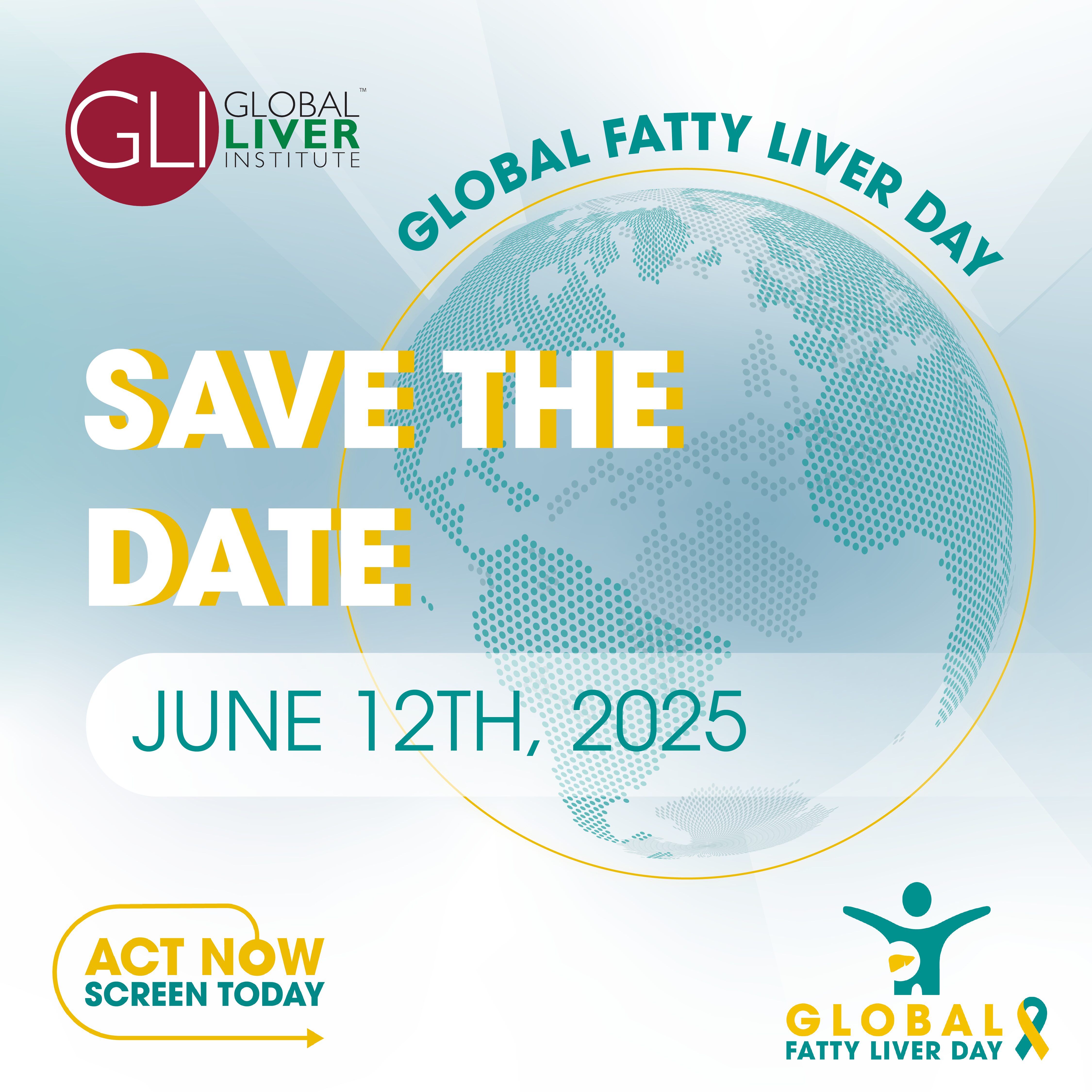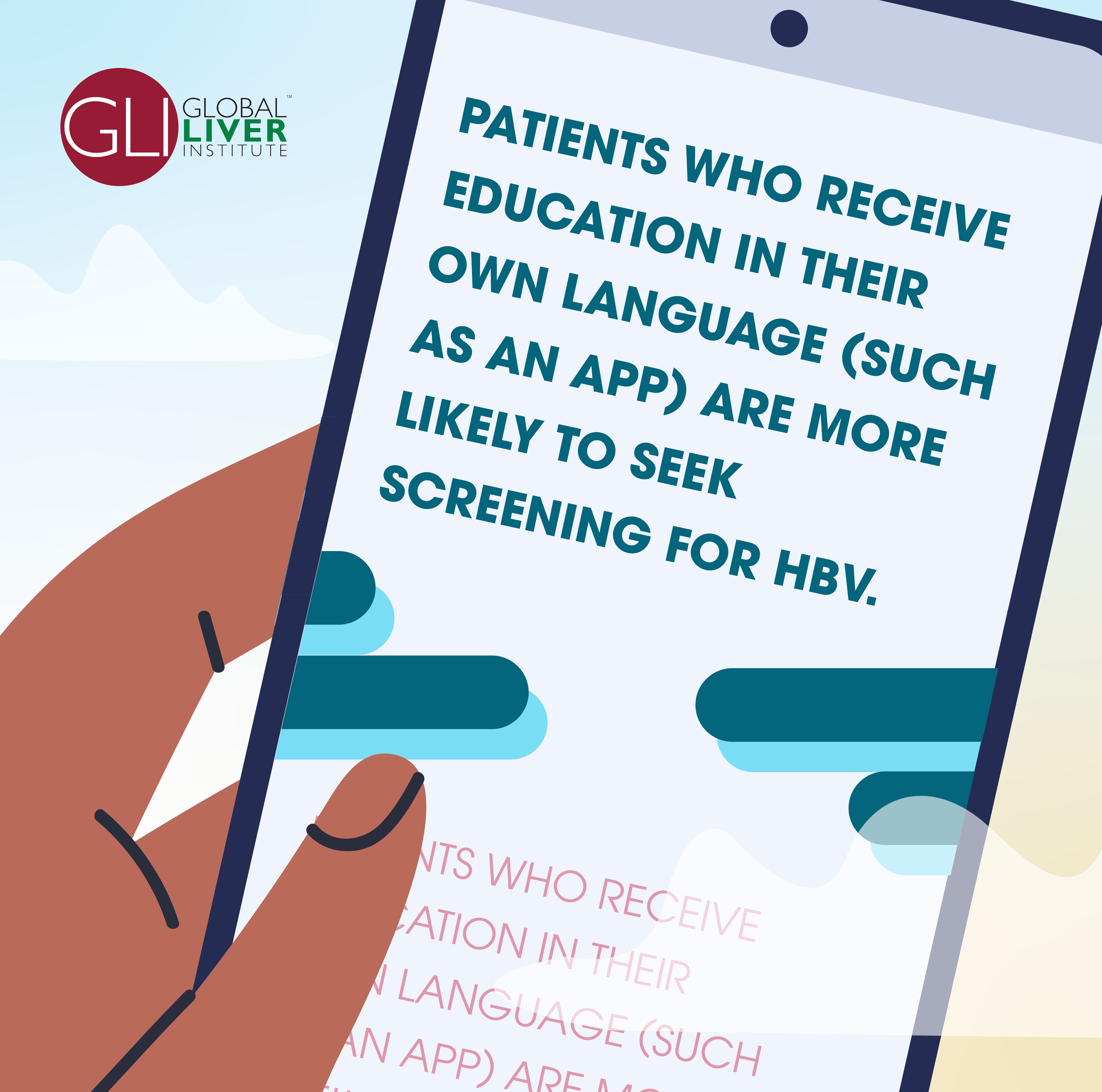
Liver Health Insights, Events, and a Global Challenge
A Note from the Director, Dr. Sharon H. Jaycox
Reflecting on EASL Congress 2025 – A Call to Action for Liver Health Equity
Attending EASL 2025 in Amsterdam was an eye-opening and inspiring experience. I had the opportunity to connect with professionals from across the globe: biotech and pharmaceutical representatives, patient advocates, scientists, physicians, and researchers, all united by a shared goal: advancing liver health.

I deepened my understanding of Primary Biliary Cholangitis (PBC), explored promising liver therapies currently in development, engaged in advocacy efforts, and had thought-provoking discussions on the growing role of noninvasive techniques (NITs) in liver disease management.
One moment that left a lasting impression was witnessing hundreds of people waiting in long lines for free liver scans. It was both heartening and heartbreaking—heartening because it proved that people do care and want to know their liver health status; heartbreaking because it highlighted the gaps in access to testing and early detection.
EASL taught me that we must do more, and we can do more to decrease the burden of liver disease by:
- Increasing access to testing modalities like NITs
- Raising awareness about liver health
- Expanding clinical trial participation, with a strong focus on diversity and inclusion
The future of liver disease prevention and treatment depends on our collective efforts to make information, innovation, and care accessible to all communities. This experience gave me hope and a renewed commitment to push for progress in liver health advocacy.
Global Fatty Liver Day is on June 12 – There’s Still Time to Get Involved!
- Tune in to our Global State of Fatty Liver Disease panel discussion to hear from experts around the world.
- Spread the word using our ready-to-go social media toolkit. 📱
- Take action for your health — join the Global Liver Movement and get active to help reduce your risk. 🏃
- Check our Partner Map to see if there’s a liver health event happening near you. 🗺️
- Deepen your understanding and enhance your care for patients with MASLD and MASH—featuring special guest speaker, GLI Patient Ambassador, Jen Berg, in a CME opportunity for providers, Stemming the Tide on MASLD/MASH.
Let’s raise awareness and take steps toward a healthier future — together.
👉 Visit https://globalfattyliverday.com/ to learn more and take part!
GLI Hosts a Policy Event on the Sidelines of WHA78 – Together for Better Liver Health: Strengthening Public Health Responses to Metabolic Disease, Geneva, Switzerland
This policy event, co-hosted by Global Liver Institute (GLI), the European Association for the Study of the Liver (EASL), and the American Association for the Study of Liver Diseases (AASLD) and endorsed by over 20 international medical societies and organizations, served as a Call to Action for Member States and the WHO to:
- Formally recognize SLD as a Core NCD, ensuring it is included alongside cardiovascular diseases, diabetes, obesity, and other major NCDs.
- Expand public awareness campaigns to educate individuals on SLD risk factors and the importance of early detection and treatment.
- Integrate SLD into NCDs prevention programs, aligning efforts with existing public health initiatives that target obesity, lifestyle interventions, and metabolic health.
- Support research and data collection to advance understanding of SLD’s epidemiology, prevention, and treatment.
Additionally, during the event, the second edition of the Best Practices in Liver Health Policy report was released. This new edition features five new case studies from Brazil, Japan, Mexico, Spain, and Qatar that demonstrate the integration of liver health into clinical pathways and broader health frameworks.



Emerging Insights
Metabolic Dysfunction–Associated Steatotic Liver Disease (MASLD) in People With Diabetes: The Need for Screening and Early Intervention
The American Diabetes Association released a new Consensus Statement recognizing MASLD as a significant concern in the realm of metabolic health, particularly in individuals with prediabetes, type 2 diabetes, and obesity. The report highlights the need for heightened awareness and proactive management. Insulin resistance and cardiometabolic risk factors lie at the heart of its pathogenesis, making early screening and intervention critical for preventing progression to severe liver diseases. By addressing MASLD comprehensively, healthcare providers can significantly improve patient outcomes and mitigate its long-term impact on health.
Long-term Mortality and Extrahepatic Outcomes in 1096 Children with MASLD: A Retrospective Cohort Study
The rate of Metabolic dysfunction–associated steatotic liver disease (MASLD) is the most common liver disease affecting children. Unfortunately, it is also undiagnosed until it is discovered in late stage. The Journal of Hepatology shares the findings of the Longitudinal Investigation Evaluating Results of Steatosis (LIVERS) study, emphasizing the need for diagnostic and treatment modalities suitable for pediatric patients.
Non-alcoholic Fatty Liver Disease, in Contrast to Alcohol-Associated Liver Disease, is Associated with Lower Socio-economic Status
A study published in the Annals of Hepatology highlights the significant impact of socioeconomic status (SES) on the health of the German population, particularly in relation to liver diseases. The findings suggest that individuals with lower SES are more likely to develop liver-related conditions, pointing to a correlation between economic and social disadvantages and poorer health outcomes. Additionally, the study identified a higher body mass index (BMI) among patients from lower socioeconomic backgrounds, indicating that obesity may act as a contributing factor or co-morbidity in the development of liver disease. These results underscore the importance of addressing the social determinants of health, which in turn will reduce the burden of liver diseases and promote more equitable healthcare outcomes across different population groups.
⬇️ Tools and Resources ⬇️
Standards of Care in Overweight and Obesity
A division of the American Diabetes Association, the Obesity Association has released the 2025 publication of “Weight Stigma and Bias: Standards of Care in Overweight and Obesity,” along with the “Introduction & Methodology”. The evidence-based guidance serves as a road map for providers who care for people living with obesity and overweight. The guidelines offer recommendations and interventions, and help remove some of the stigmas associated with obesity. Obesity is a significant risk factor for insulin resistance, inflammation, and oxidative stress, which can contribute to liver injury or fatty liver disease.
Dx Dialogues: Metabolic-associated steatohepatitis (MASH)
Global Liver Institute collaborated with Sharecare to create a MASH content destination center that provides healthcare providers with timely medical information, market trends, and more. Visit the resource center here.
The Frontline Role of Primary Care in Hepatitis B Care
Primary care providers are pivotal in the fight against hepatitis B, a silent yet serious liver infection affecting millions globally. Our latest blog post highlights the vital role of primary care in the early detection, vaccination, and management of hepatitis B. With the CDC recommending universal screening for adults, primary care settings are well-positioned to identify individuals at risk and initiate timely interventions. By integrating hepatitis B screening and education into routine care, primary care professionals can significantly reduce the burden of liver disease and improve patient outcomes.
Upcoming Events
- June 12, 2025: Liver Health Foundation’s MASLD-MASH Webinar
- June 12, 2025: Global Fatty Liver Day
- June 26, 2025: GLI – Policy Update
- July 10, 2025: Fatty Liver Disease Council meeting. For more information, please contact fattyliverdisease@globalliver.org



